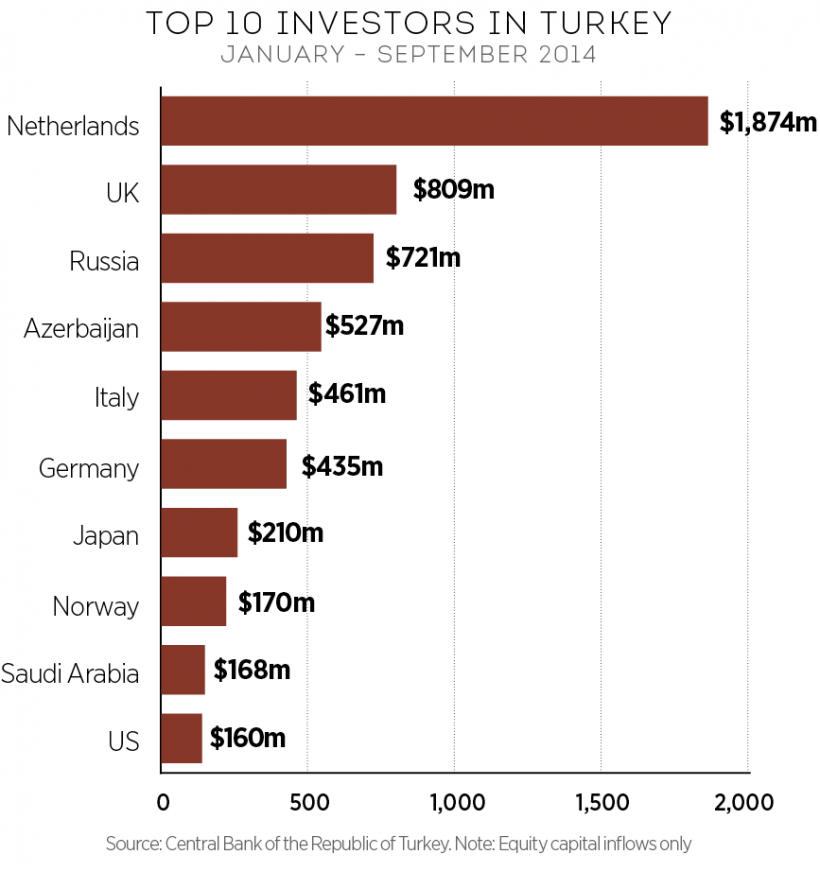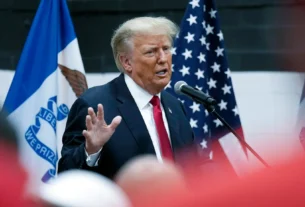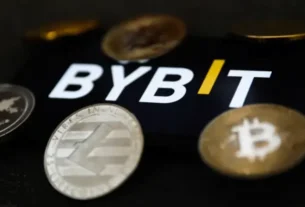
Despite massive intervention to stabilize the currency and restore confidence, foreign investors continue to be wary of Turkish assets. After the lira fell to a record low of more than 40 to the dollar last week, the central bank committed more than $25 billion in a matter of days, rebuilding the country’s net foreign reserves from deep in the red to about $65 billion and topping $150 billion.
In a dramatic week following the detention of Istanbul’s mayor and the most serious opposition challenger to President Recep Tayyip Erdoan, the sum, which was calculated by the Financial Times and referred to by the governor of the central bank during a call with investors, reflects the high cost of bolstering support for Turkey’s fragile economy.

The detention sparked the largest demonstrations in many years and led to hundreds of arrests. In spite of the withdrawal of foreign capital, central bank governor Fatih Karahan and finance minister Mehmet Simsek have contributed to the stabilization of Turkish markets.
As of Thursday, the lira had traded around 38 to the dollar for several days. One Turkish official stated that foreign investors withdrew approximately $16 billion, but policymakers believe that “the worst may be behind [them].” Foreign investors, on the other hand, remain concerned about the possibility that Erdoan will ultimately fire the pair, who led a turnaround in Turkey’s finances following elections in 2023 to stop a worsening economic crisis. The turmoil this month has rekindled concerns regarding an uncontrollable rush toward dollars.
Mohammed Elmi, a portfolio manager at Federated Hermes, stated that although the impact on reserves to facilitate foreign exits is manageable, “if this kind of heavy intervention does last beyond a week, it will be tough for Turkish policymakers to hold the line.” This week, Erdoan said he supported the actions of the central bank and attributed the economic “sabotage” to Imamoglu’s main opposition party, the CHP: “We will never allow the gains we have made from [the economic policy programme] to be harmed.” On Tuesday, Simsek and Karahan said they would do whatever it took to stabilize the lira in a carefully staged call with thousands of investors. Carlos de Sousa, emerging market debt manager at fund manager Vontobel, said that Simsek and Karahan’s policies were a “remarkable success” in rebuilding Turkey’s reserves over the past year and a half. However, he also mentioned “how many resources were burned in less than a week that it took a year to accumulate” as evidence of the “economic cost of the political decision that was taken.” The so-called carry trade, which involves borrowing in a currency with a lower interest rate, like the dollar or yen, to invest in high-yielding assets in another currency, is a major driver of the currency. JPMorgan puts the size of the carry trade at $35 billion. Investors have been enticed by interest rates as high as 50%, which the Turkish government has used as a means of funding an economic recovery
. But hedge funds using leverage to boost the trade as the lira soared past key risk limits last week were among the foreign investors rushing to exit, accelerating the currency’s decline. Brad Setser, a senior fellow at the Council on Foreign Relations and a former official at the US Treasury, stated, “The fuel that led to such a rapid intervention was the carry trade, and much of that carry trade was unwound.” He added that this unwinding should reduce the need for additional severe intervention on the scale of the previous week. Turkey could probably use up another $10 billion in reserves, but it probably doesn’t want to. According to William Blair emerging market debt manager Yvette Babb, the central bank’s interventions had restored some market confidence, but “the thing that they are most concerned about is the potential for locals to start dollarising again.” According to participants in Simsek’s investor call on Tuesday, foreign investors accounted for approximately two thirds of the week’s exit rush, while local retail investors accounted for one tenth.
According to Bradley Wickens, chief investment officer of Broad Reach, an emerging markets hedge fund, “Tension on the streets is never good for a trade.” In recent days, Broad Reach has slightly reduced its Turkey position. He added, “The trade could be affected negatively if democratic governance continues to deteriorate or if the opposition mounts a substantial, long-lasting, and gaining traction campaign as a result of Imamoglu’s arrest.”
According to those who were familiar with the contents of this week’s investor call, Simsek and Karahan did not directly address the political situation. However, investors saw their visibility as a sign that Erdoan is genuinely interested in keeping them in their positions for the time being. This is despite Turkey’s track record of firing central bank governors, particularly when the economy is struggling.
According to Babb’s statement, the two “have been able to pursue what have been market-friendly responses to the volatility.” “The market has confidence that their position is protected due to this very strong response.” Babb added that investors still faced the “tail risk” that Erdoan might eventually abandon conventional policies. Babb, whose fund was in the Turkish carry trade and had additionally purchased default protection on the nation’s debt, stated, “I do think there was some degree of market complacency, if you can call it that, in the pricing” of that risk.
Elmi of Federated Hermes said that there were “small odds” that Erdoan, whose unconventional policies were blamed for economic turmoil before he appointed Simsek two years ago, would add an economic crisis to a political one. However, he stated that it “would be a real setback in terms of the progress Turkey has made.” He stated that “he really would be staring over the precipice” if he replaced the top economic management team. “would be wholly inadequate, in terms of outflows and the demand from locals to dollarise,” the current level of net reserves reads.




